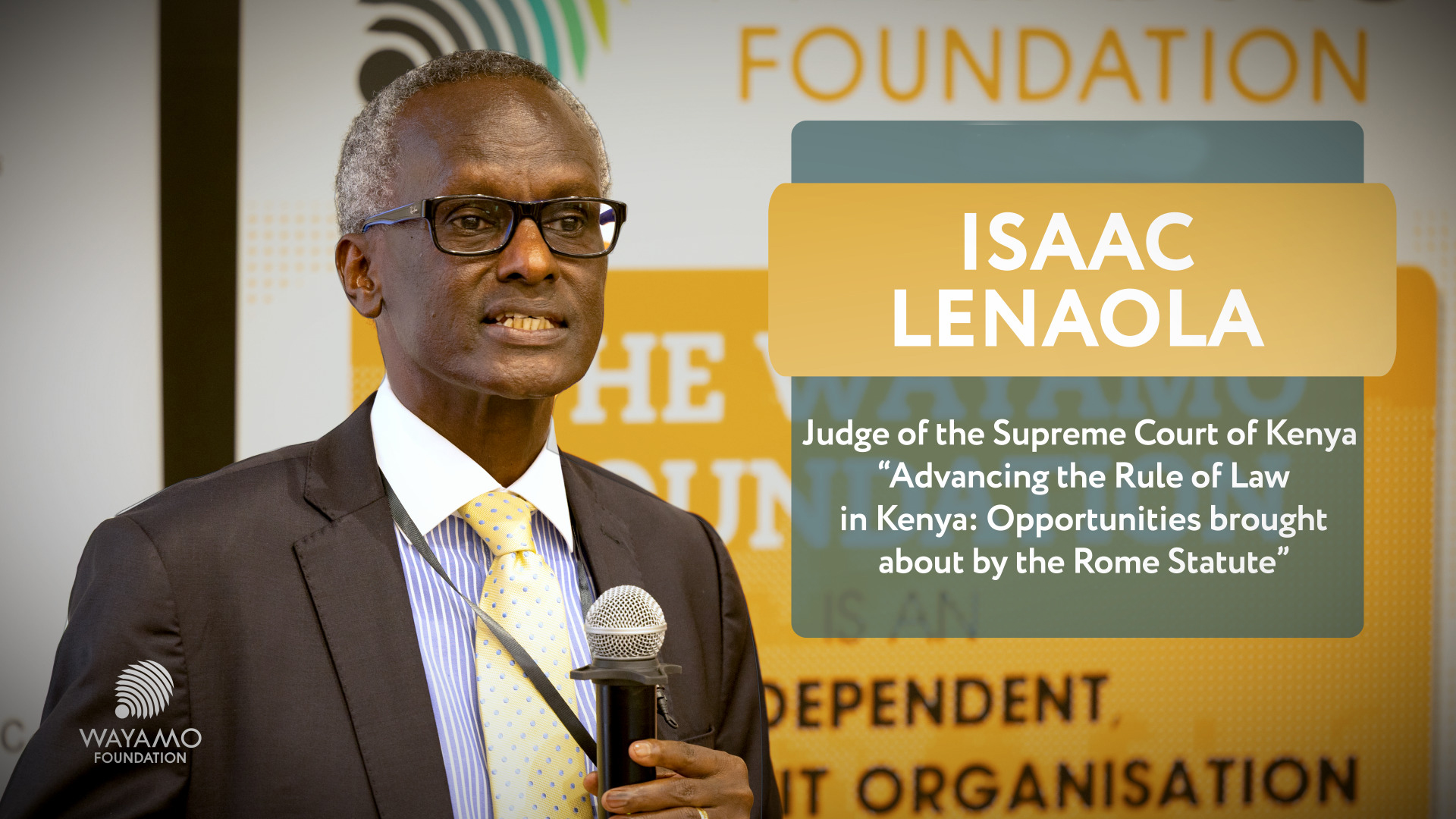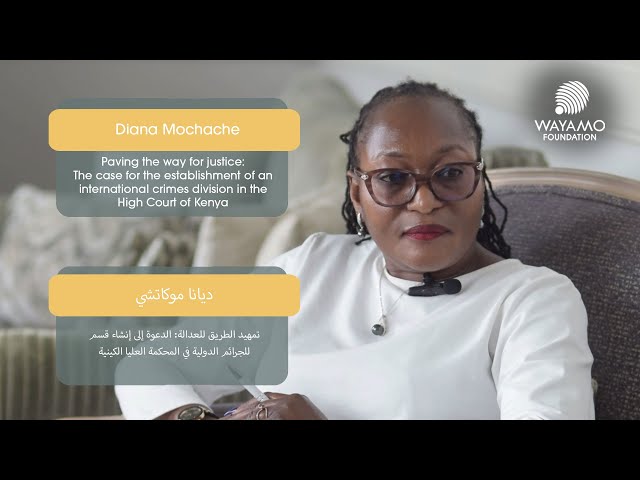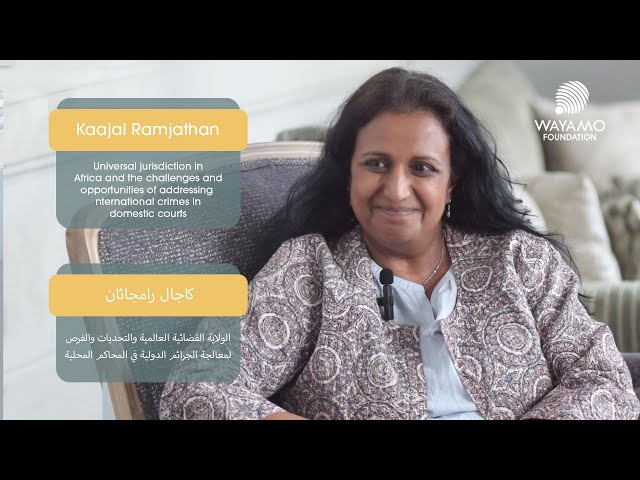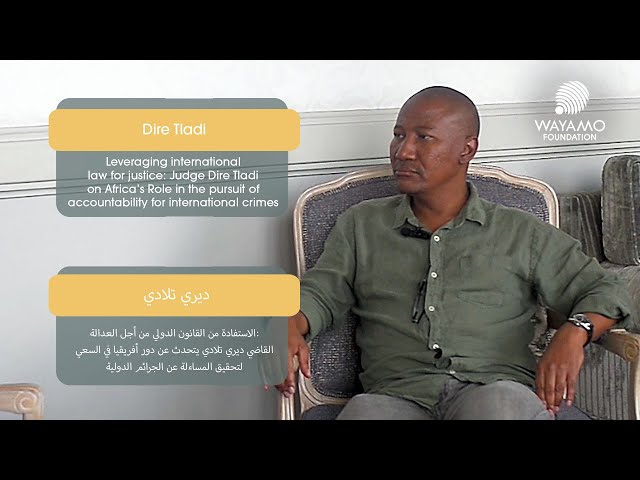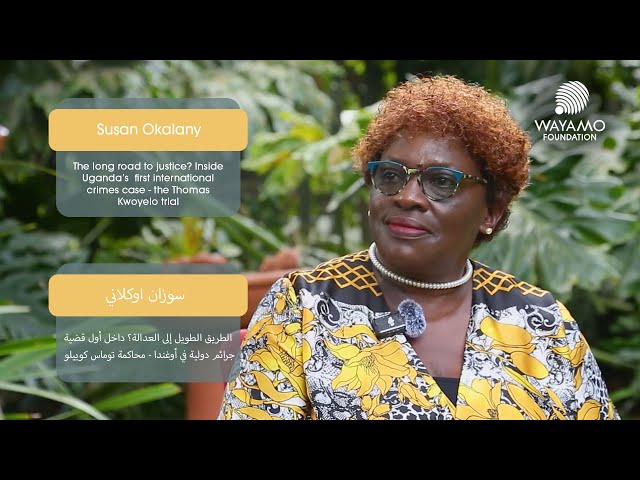11 July 2017
Dakar, Senegal, 11 July 2017: Bettina Ambach (Director, Wayamo Foundation) talks to Toussaint Muntazini and Jacob Damili Sanny (Special Prosecutor and Indictment Chamber Judge respectively of the Special Criminal Court in Bangui, Central African Republic). ENGLISH BELOW.
***
-Toussaint Muntazini-
The Special Criminal Court (SCC) is the youngest court on the international criminal justice scene. It is based on the principle of complementarity, construed somewhat differently to the definition given in Article 1 of the Rome Statute. The law establishing the SCC has a judicial architecture based on three pillars: firstly there is the ICC, which has been investigating the situation in the Central African Republic (CAR) for the past ten years; secondly there is the SCC, which has primacy over domestic jurisdictions; and thirdly there are the national courts. Now we will have to interact between these 3 orders of jurisdictions.
What lessons can be drawn from these last three days of interaction and exchange of views? The SCC was created in response to the desire of the Central African people to fight impunity. There is currently a debate in Africa which brings the ICC into confrontation with the African Union. The SCC can be regarded as an alternative means of prosecuting serious crimes committed in Africa. The experience of colleagues who have worked for the
Extraordinary Chambers, ICTR, ICTY or ICC, will surely help us: we will most certainly be facing the same types of challenges and will try to put their experiences into a Central African context.
-Bettina Ambach-
What are the biggest challenges the court is facing right now?
-Jacob Damili Sanny-
The first challenge is that of ensuring security throughout the country: without security, there can be no justice. A large part of the country is occupied, and many victims are living in these areas. The appearance of witnesses before the court or even conducting investigations in these areas will be difficult.
The second challenge is the appointment of the members of the Court. Two international prosecutors still have to be appointed to the Indictment Chamber. The knowledge and skills of the prosecutors, investigators and Registrar must also be strengthened. Through this exchange with our colleagues from the Extraordinary African Chambers, we have been able to gain a better understanding of the constitutive elements of international crimes.
Then there is the problem of refurbishing the building that is intended to house the SCC. We hope to be able to move in by the end of the year.
-Toussaint Muntazini-
I could perhaps add two or three more challenges: first, there is the sheer scale and complexity of the crimes that have been committed since 2003. These are crimes that are not only numerous and complex, but in some cases, the evidence may have disappeared or the victims may have fled to neighbouring countries. This may require co-operation agreements with countries, in order to be able to reach out to the victims.
Second, the SCC legislation requires several additional legal instruments, Rules of Procedure and Evidence, a victim and witness protection strategy, and an SCC prosecution strategy. All these instruments must be adopted in a consensual manner. Furthermore, we need to communicate with the public and communities, so that their expectations are adequately and properly addressed.
The final challenge is a financial one: the SCC is currently funded by voluntary contributions, which will enable the SCC to operate for 15 months. We need to produce results, lobby and convince donors to come forward, and so increase current funding commitments.

